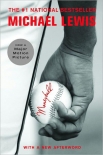Moneyball by Lewis, Michael (books to read in your 30s TXT) 📗

Book online «Moneyball by Lewis, Michael (books to read in your 30s TXT) 📗». Author Lewis, Michael
Intelligence about baseball had become equated in the public mind with the ability to recite arcane baseball stats. What James’s wider audience had failed to understand was that the statistics were beside the point. The point was understanding; the point was to make life on earth just a bit more intelligible; and that point, somehow, had been lost. “I wonder,” James wrote, “if we haven’t become so numbed by all these numbers that we are no longer capable of truly assimilating any knowledge which might result from them.”
His final essay in his final Baseball Abstract James entitled “Breakin’ the Wand.” “To most people it no doubt seemed that I was writing about statistics,” he said, “but I wasn’t, not ever; in the years I’ve been doing this book I have written no more than a couple of articles about baseball statistics. The secret of the success of this book is that I was dead in the center of the discussion. I was writing about exactly the same issues that everybody else was talking about, only in a different way.”
With that, he quit. Claimed he was through being a sabermetrician. “It is a wonderful thing to know that you are right and the world is wrong,” he concluded. “Would God that I might have that feeling again before I die.” He never had a clue—not then, not later—that the world was not entirely wrong. No one ever called James to say that an actual big league baseball team had read him closely, understood everything he had said along with the spirit in which he had said it, and had set out to find even more new baseball knowledge with which to clobber the nitwits who never grasped what Bill James was all about.
Chapter
V
The Jeremy Brown Blue Plate Special
What I have tried to do with my work is to make baseball more fun.
—The Bill James Newsletter, 1985
When you think of intellectuals influencing the course of human affairs you think of physics, or political theory, or economics. You think of John Maynard Keynes’s condescending line about men of action—how they believe themselves guided by their own ideas even when they are unwittingly in the thrall of some dead economist. You don’t think of baseball, because you don’t think of baseball as having an intellectual underpinning. But it does; it had just never been seriously observed and closely questioned, in a writing style sufficiently compelling to catch the attention of the people who actually played baseball. Once it had been, it was only a matter of time—a long time—before some man of action seized on newly revealed truths to gain a competitive advantage.
By the time he became the general manager of the Oakland A’s, in 1997, Billy Beane had read all twelve of Bill James’s Abstracts. James had something to say specifically to Billy: you were on the receiving end of a false idea of what makes a successful baseball player. James also had something general to say to Billy, or any other general manager of a baseball team who had the guts, or the need, to listen: if you challenge the conventional wisdom, you will find ways to do things much better than they are currently done. A full decade after James stopped writing his Abstracts, there were still two fresh opportunities for a team willing to take them to heart. One was simply to take the knowledge developed by James and other analysts outside the game, and implement it inside the game. The other was to develop and extend that knowledge. The Oakland A’s had done both, though it would be wrong to say that, in using James’s ideas, they aped James. As the Elias Sports Bureau had proven when they tried to rip off the Abstract, it was impossible to ape James. The whole point of James was: don’t be an ape! Think for yourself along rational lines. Hypothesize, test against the evidence, never accept that a question has been answered as well as it ever will be. Don’t believe a thing is true just because some famous baseball player says that it is true. “Anyone who thinks he is aping me, isn’t,” said James.
As late as June 4, 2002, the day of that year’s amateur player draft, there were still big questions about baseball crying out for answers; a baseball diamond was still a field of ignorance. No one had established the most efficient way to use relief pitchers. No one had established to the satisfaction of baseball intellectuals exactly which part of defense was pitching and which fielding, and so no one could say exactly how important fielding was. No one had solved the problem of fielding statistics. And no one had figured out how to make the amateur draft any more than the madness it had always been. James hadn’t worried too much about the amateur draft—probably because the players’ statistics, before the Internet came along, weren’t available to him to analyze. But in a newsletter he





Comments (0)